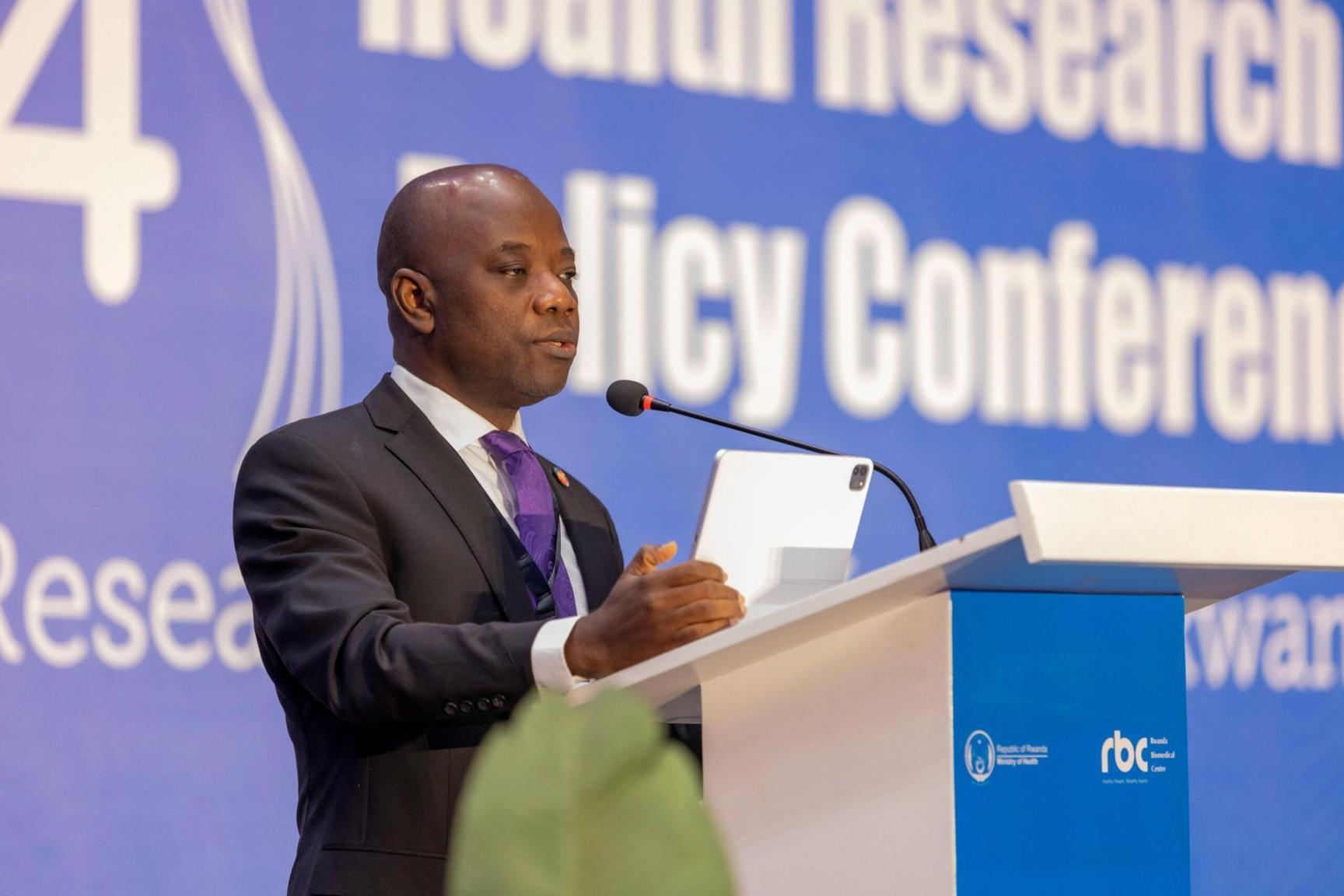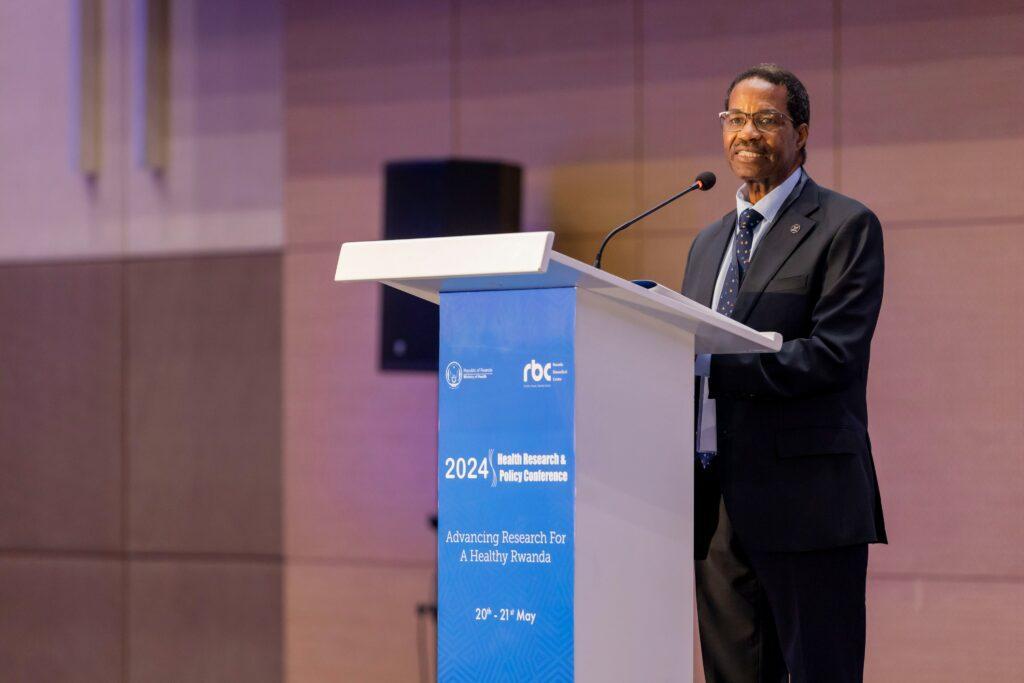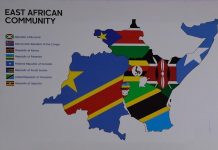Africa-Press – Rwanda. The 3rd Annual Health Research & Policy Conference in Rwanda has opened in Kigali, with the launch of a national research agenda that will guide the country in improving healthcare services and inform the upcoming 5th Health Sector Strategic Plan (2024-2029).
The conference is an initiative launched in 2018, with the aim to contribute to the improvement of health and wellbeing of all Rwandans by bringing together key players in the healthcare sector to reflect and discuss on the translation of research evidence into policymaking and implementation.
The two-days conference which opened on May 20, 2024 at the Kigali Convention Centre and hosted by the Ministry of Health, aims to bring together policymakers, researchers, healthcare professionals, and stakeholders to forge a united front in shaping the future of healthcare in Rwanda.
Rwanda Biomedical Centre (RBC) Director General, Dr. Claude M. Muvunyi said that the conference endeavors to connect the vibrant health research community in Rwanda, promoting grassroots research initiatives and providing a platform for in-depth discussions on translating research evidence into impactful policymaking and implementation strategies.
“By convening diverse perspectives, we aim to promote and evaluate innovative approaches for achieving quality healthcare outcomes tailored to Rwanda’s specific health needs.” Muvunyi said.
Throughout the symposium, parallel sessions will delve into various health-related topics, including infectious diseases, chronic diseases, mental health, pandemic preparedness, data science, clinical trials, and maternal and child health, further enriching our discussions and insights.
In order to do tangible impactful research in the areas, Muvunyi said that although notable advancements have been achieved in healthcare (especially reducing maternal and infant mortalities) there remains substantial work ahead and thus called on an increase in research investment and fostering partnership.
“It is imperative to increase investments in research and development to unearth novel tools and strategies. Closing the divide between pioneering research and its practical implementation within communities is essential for success, and this conference serves as a crucial platform for fostering partnerships toward this objective,” Muvunyi said.
Dr. Eric Remera, Division Manager of Research Innovation and Data Science, presented Rwanda’s National Health Research Strategy and highlighted the importance of capacity building and the use of data science to improve the quality and effectiveness of research.
Dr. Brian Chirombo, the World Health Organization (WHO) Rwanda Country Representative said health policy formulation must be underpinned by the best and latest available evidence to ensure that public health policy is informed by research.
Since health research evidence is generated and assimilated within an ecosystem comprising various actors, Chirombo stated that the WHO will support Rwanda to create a robust evidence ecosystem that necessitates proper structures, capabilities, and incentives to ensure the evidence is available, accessible, and applied in decision-making.
“I am happy to report that WHO is working with the University of Rwanda for it to become the first WHO Collaborating Center on Data and Health Information in the country,” Chirombo said.
WHO collaborating centres are institutions such as research institutes, parts of universities or academies, which are designated by WHO to carry out activities in support of the Organization’s programmes.
Currently there are over 800 WHO collaborating centres in over 80 Member States working with WHO on areas such as nursing, occupational health, communicable diseases, nutrition, mental health, chronic diseases and health technologies.
Dr. Olugbemiga Adelakin, Representative of UNFPA Rwanda said that their support to the government in developing the National Health Research Agenda and the Research, Innovation, and Data Science Strategic Plan is a testament to collective efforts to pave the way for informed, evidence-based policy-making that can transform lives.
“UNFPA Rwanda remains dedicated to collaborating with all stakeholders, government, academic institutions, civil society, and international partners to foster an environment where research and data are not just produced but are also effectively utilized to craft policies that can withstand the tests of time and change.
Adelakin emphasized that strengthening a research and evidence-based ecosystem requires a multifaceted approach that includes capacity building ensures that national researchers have the skills and resources needed to conduct high-quality studies, Partnerships with national governments, research institutions, and other stakeholders; Funding and resources for sustaining health research which requires increased domestic resources and shared values in investing in health research from both national budgets and international donors and effective data utilization
The conference will host parallel sessions dedicated to in-depth discussions on various health related topics, financing sources, enhancing human resources capabilities and skill development in Research and development (R&D), fostering a culture of innovation but most importantly developing a national research policy.
Dr. Eugene Mutimura, the Executive Secretary of the National Council for Science and Technology (NCST) revealed that they are currently working on an incentives and support policy for research that will holistically address existing gaps in financing, collaboration and support research to deepen their work to inform policy and create impact.
For More News And Analysis About Rwanda Follow Africa-Press








